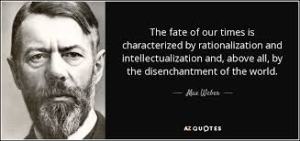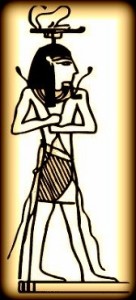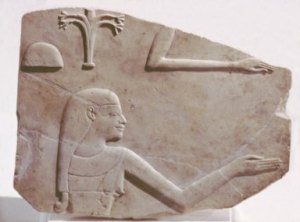
I missed a post last week, because like so many of us right now, frankly, I was a bit down. Yet, in times like these, when the glamour is off…well…just about everything, this, this is when we need Her more than ever. Isis, the Great Enchantress.
If you’re like me, your social feeds are filled right now with people wanting, longing—demanding even—to celebrate the magic of sad-sweet-mysterious and beautiful October. Our hearts cry out for magic. We need the re-enchantment of our world.
Yet the heart-cry for re-enchantment is not new. We human beings have long complained about the world’s disenchantment. German sociologist Max Weber famously decried it in the early 1900s and before him Freidrich Schiller in the early 1800s. No doubt the discussion goes back much farther than that, too.
I first read the term in the work of Thomas Moore, a psychotherapist, former monk, and spiritual writer. His books, Care of the Soul and The Re-Enchantment of Everyday Life, were best sellers, which tells us that there are many of us longing to bring the enchantment back. As steps toward re-enchantment, Moore calls us to get away from our self-centeredness and experience the Other, to relinquish some of our literalism to become more poetic, to get out in nature, and to seek out Mystery.
The enchantment of everything—the magic in everything, the magic OF everything—is one of the things I most admire about [probably my personal fantasy of] ancient Egypt, as least as far as we understand it. I love Jeremy Nadler’s interpretation in his book, Temple of the Cosmos, when he writes about the “interpenetrating worlds” of the ancient Egyptians. Spiritual realities are immediate and present because the spiritual world interpenetrates the earthly: “for the ancient Egyptian, a metaphysical world poured into the physical, saturating it with meaning.” Yes. Yes. YES!
My own quest for enchantment is one reason why I describe my spiritual path as Sacred Magic. In practice, this encompasses everything from simply chanting for Isis to a wide range of the expressions of modern Hermeticism (which indeed has its oldest roots in ancient Egypt), including the theurgic rites of magic that are intended to grow our souls and spirits. Of course, it also explains, at least in part, my attraction to Isis, Great of Magic and the Great Enchantress.
Who else would be the Goddess of Re-Enchanting the World but the Great Enchantress Herself? Yet when we see the title in older English translations, “Isis the Great Enchantress” usually translates Iset Werethekau, which we have discussed here. It seems to have been preferred by some of the Old Gentlemen of Egyptology who were perhaps a bit uncomfortable with the squirmy idea of magic and wanted a kinder and gentler epithet for the admirable Goddess Isis.

But enchantment has a long magical history. It comes from the idea that acts of magic are often sung or chanted or accompanied by singing or chanting. To be enchanted is to be affected by the magic carried in the chant or song. About 1300 CE, the word enchantment came into English from Old French, which got it from Latin incantare, “to sing into.”
Isis often activates Her magic by voice. The “Hymn to Osiris” in the Book of Coming Forth by Day says of Isis:
She recited formulæ with the magical power of her mouth, being skilled of tongue and never halting for a word, being perfect in command and word, Isis the Magician avenged her brother.
A papyrus in the Louvre says:
Isis. . .who repels the deeds of the enchanters by the spells of her mouth.
And a healing formula in the collection of the Greco-Egyptian Magical Papyri says the spell will be successful
…according to the voice of Isis, the magician, the lady of magic, who bewitches everything, who is never bewitched in her name of Isis, the magician.”
In the second example above, Professor Robert Ritner, who has studied Egyptian magic and its vocabulary extensively, translated the Egyptian word shed-kheru as “enchanters.” “Shed” means “to enchant” and “kheru” is “coming/going forth” as in peret kheru, an invocation offering, the “going forth of the voice.” Shed-kheru then is something like “those who send forth enchantments by voice.” Shed seems to have been a specialized form of “to recite” and was used both in magical formulae and in temple ritual texts. When the Creatrix Goddess Neith spoke the cosmos into existence, She shed, “recited,” Her akhu, “spells.”
Especially on His healing cippi, Horus is sometimes called Horus-Shed, “Horus the Enchanter.” And yes, you are way ahead of me again. Of course, Isis, too, is called The Enchanter. In Her case (feminized), it is Iset ta Shetyet. In fact, we have a handful of instances of that name being applied to Isis. And so it seems that Isis is indeed The Enchantress and I shall have to retract my previous snark at the Old Gentlemen.
Chanting, singing, and music were a vital part of the worship of the ancient Egyptian Deities. By the time of the New Kingdom, the most common sacred title for women was Chantress or Singer of the Deity. These priestesses served both Goddesses and Gods, providing the songs and music that raised and channeled the energy of the sacred rites.
The Divine archetype behind this ritual role was the Goddess Merit or Meret, Whose name means “The Beloved.” With Her song, music, and magical gestures, Merit took part in the Creation. Daily, Her song greets the dawn and in kingship rites Merit encourages the king to bring good things to his kingdom, commanding him to, “Come, bring!” In this role of speaker and singer, Merit and the priestesses who represented Her—and in some cases, bore Her name as a title—were called “Great of Praise.” This was not meant to indicate that the priestess herself was praiseworthy (though she may have been). Instead, it meant that her praise—that is, the hymns she sang and the words she spoke—were words that had effect. Just as the words of Isis, the Lady of Words of Power, are ritually efficacious, so the words of Merit are ritually efficacious.
Much of the magic of the ancient Egyptians was focused on the idea of renewal, rebirth, and reconnecting to the perfection of the First Time. For us today, perhaps we should add a fourth to those three r’s: re-enchantment. As we work to renew and restore the world around us, it may be that our inner work is to renew our own magical perception of the world, re-enchanting ourselves from the inside out. And I’m quite sure that a chanted incantation to Isis the Enchantress wouldn’t hurt either.







